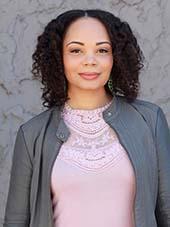-
About
-
Academics
- Physician Assistant
- Special Master’s (MBS)
-
Admissions & Financial Aid
- Tuition & Fees
-
Student Life
-
Research
- Research Labs & Centers
-
Local & Global Engagement
- Global Health Program
Diane Randolph Builds Community for Refugees and Immigrants
"I was drawn to Tufts for a number of reasons including the affiliation with the medical school, the focus on health communication as a core component of prevention, the location in greater Boston."

I am the Director of the Community Building Unit of the Massachusetts Office for Refugees and Immigrants (ORI). ORI is the state agency tasked with oversight of the resettlement process for individuals and families fleeing to safer ground from persecution, war, and other threats. In this role I wear a lot of hats: I have significant fiscal, programmatic and staffing oversight serving to support the resettlement and post resettlement social adjustment needs of approximately 2,500 refugees per year, hailing from such countries as Burma, Bhutan, Congo, Haiti, Iraq, Somalia, and Syria. My primary areas of oversight include: early education and care programming for children ages 0-5, school aged integration for refugee youth entering public education, public health and prevention based activities, elder services programming, vocational training and workplace English, and citizenship supports. I am also the Agency's Director of Diversity/ADA/Veterans Affairs and Language Access Coordinator.
What inspired you to pursue an MPH or MS in your area of specialization?
I always wanted to solidify my commitment to public health, and when I applied to programs I had about seven or so years of varied health related experiences, particularly in community based settings, hospitals, and local public health. I focused on health communication because I wanted to have a strong framework to tap into with regard to programming, particularly for limited English proficient and/or other historically marginalized groups. It simply isn't enough to translate a document; I wanted to find ways to reach populations in ways that were inclusive, appropriate and real. An MS in HCOM seemed a way to do that.
What drew you to the Tufts' Program?
I was drawn to Tufts for a number of reasons including the affiliation with the medical school, the focus on health communication as a core component of prevention, the location in greater Boston (this was important as I started at Tufts just after having a baby and after moving back to Massachusetts after some time in Manhattan). I did research other programs, but I kept coming back to Tufts, the Tufts brand, and wanted to see how I could fit in there.
When I reached out to Tufts, I made an immediate connection with the Program Director Sue who, like me, had experience working in municipal public health settings. I appreciated that connection and it solidified my desire to attend. And so, I applied, was accepted and enjoy my alum status.
How did your Tufts degree help prepare you to work in the field, or what were the highlights of your program?
I came to Tufts with a decent number of years under my belt working in health: much of my expertise came from exposure, gut and grit. By the time I graduated I'd had a theoretical understanding that balanced my hands-on knowledge. I work in health and human services within the largest secretariat of the State. As a result of my degree and experiences I am able to look at population trends and predict and propose inclusive interventions; I can conduct focus groups as a component of community based participatory research; I can develop culturally and linguistically appropriate curriculum or health education content. I am able to inform patient-level interventions and collaborate with health care providers with regard to needs of groups that may differ from their own personal experiences. In government this is important, in service delivery this is critical and in my everyday work it is a source of pride that I have the knowledge of how to do these things, and can do them well.
What advice do you have for prospective students?
My advice to prospective students
Go to a school where you will leave with tangible skills. When you are looking into graduate schools take the time to look at the overarching learning objectives. Look closely at them. If they are not available online (or upon request), reach out to admissions staff to speak with an alum of the program you are interested in. Make sure you ask about what they can do now with the degree versus what they could do prior. Ask what skills they now have as a result of the program.
Seek out "work". Tufts was a valuable experience for me in part because I had exposure to the vast field of public health on many levels and I was available and interested in taking on more: via my Applied Learning Experience (ALE), as a volunteer, as a person who co-created a graduate student group, with internships, etc. Be voracious in seeking out ways to apply what you learn, to be humbled by what does and doesn't apply or fit the grid of what you may learn. These experiences will help make this field your field.
Recognize how wide public health is. I have done everything from serving as a medical interpreter in an emergency room to macro-level oversight of statewide programming for refugees. When I started the program I had one very strict idea about what working in public health would look like for me, fortunately I was very wrong and I am enjoying the variety my skill set is affording me.